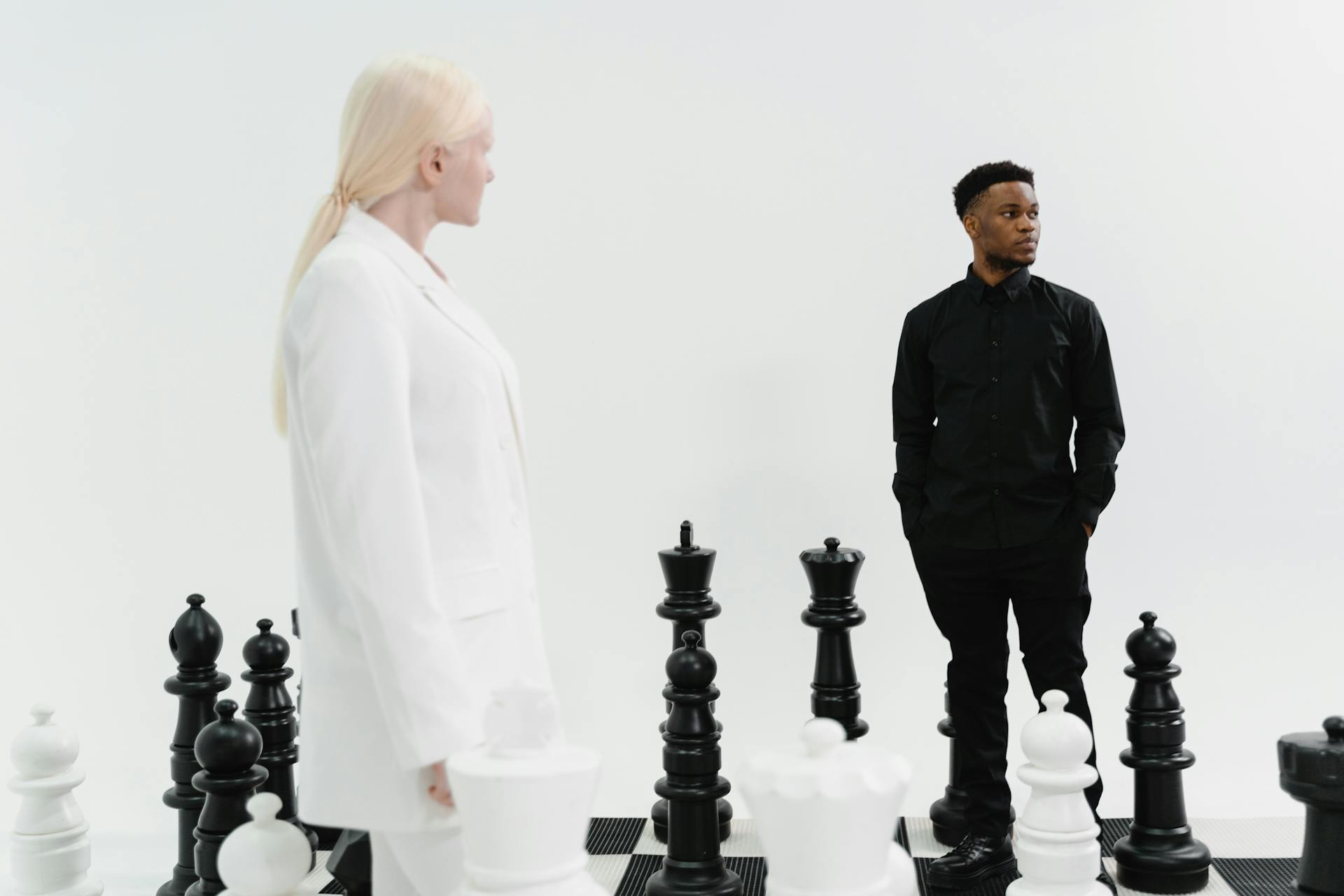
Chess and Business Leaders by DrRoch
Chess has always been an important source of learning for commanders on the battlefield. And given the nature of the competition, it has also been a source of learning and inspiration for business leaders of all times.
Today I am going to reflect on the 4 lessons of chess for a CEO leader, like those who are with me in the Mind Master which will say one year and it is a session every two months.
Chess has been described in many ways over time, depending on the goals and interests of those who defined it.
It has been said to be an instrument for the exercise of mental processes, a reference in personal development, a practice for visualization and memory skills, and even an aid to building moral rectitude.
But the fact is that Chess is an ancient game of strategy.
There are analogies for many tasks of the Entrepreneur, the Manager and the business leaders in the good old game of Chess.
Many useful analogies for business practice, as could not be otherwise when dealing with a game that is almost as old as human commercial concerns.
These are 4 Chess analogies that can provide interesting lessons for the business world:
1.- Each of the pieces of the game has a purpose.
In Chess the game begins with the arrangement of a group of pieces with different locations and functions.
From the pawn to the king piece, each with its own capacity and position.
New players move their second line pieces very quickly to try to obtain advantageous positions for their most valuable elements early on.
Experienced players, however, know that it is the unfolding of all the pieces, working together, that ensures a successful performance.
Pawns move to build clever ambushes on knights, rooks stay in reserve to support castling, and bishops coordinate with the queen to flank the king.
Each piece plays its part, and all are necessary to the choreography that takes shape in the mind of the skilled player.
It is common practice for many business leaders to only focus on hiring “the best profiles” to meet certain needs of the organizational structure. But this is a limiting criterion, whatever the definition of “the best profiles” may be.
In reality, no work team is made up only of the “stars of the show”, it is also made up of assistants, assistants, dispatchers, receptionists, secretaries, messengers, etc.
Everyone plays a decisive role, regardless of their “size” and position. This applies equally to the necessary combination of young and experienced staff, “senior” and “junior” people.
Because this is how training processes, alternation and evolution of work practices are perfected.
It is necessary to ensure that, just like on a chessboard, all participants know the role they play alongside the others. And that they know it with the same clarity as the common objective that is being pursued. In this way, everyone's participation will be taken advantage of and the indispensable synergy between all the elements will be created.
2.- Winning is a goal, not a strategy.
The countless options for moves and actions that exist in Chess and business represent a great challenge.
For this reason, it is not enough to set the goal of “winning in market X”, it is necessary to determine how.
Masters of the game of Chess see patterns in the movements of pieces around the board over the course of a game.
They do not make evaluations of a particular piece or a move. They visualize in advance the set of pieces and the dozens of moves they can make.
This ability to analyze actions and results, combined with the recognition of specific patterns is what defines Strategy.
Chess players talk about “gambits” and “outcomes” in the same way that entrepreneurs refer to “seeding stages” or “mature markets.”
They understand that the actions that lead to initial success are not the same as those that lead to final victory.
Knowing their own strengths and weaknesses, as well as their opponent's, Chess players evaluate the available options and design actions with the highest probability of winning.
Will you take an aggressive or defensive approach? Will you go for short-term gains or play for long-term advantages? What will you do when you encounter challenges along the way?
Strategy is a combination of goal orientation and focus on the actions needed to achieve it. This is how successful campaigns should be run, whether you are a business manager or a chess player:
Orientation and focus. Permanent orientation on objectives and focus on tasks that can lead to them. Both things at the same time: orientation and focus.
3.- work according to the reality of the board, not according to the 0lan.
In the game of chess, the opponent always tries to predict and frustrate the opponent's plan. Just like in business, he applies his strategy to capture more pieces (customers, places, channels, market share, etc.).
Many business and organizational leaders work on the premise of “plan the work and work the plan.” This approach attempts to predict every requirement, action, work, and even hour of effort in business activities. It seeks to anticipate as much as possible to give stakeholders in the Organization peace of mind regarding their investments and what the future holds for them.
However, this approach has proven to be inferior to agile methods that focus on adjustments to tasks being performed in the marketplace and the ability to “pivot” to new or changing conditions. Practice has shown that smart actions always outweigh the virtues of a rigorous plan.
While planning is important, what determines the success of work in the marketplace is a Strategy that fits the circumstances, not a static activity that results in a rigid set of tasks.
Competition is constantly adjusting to what one does and to the prevailing market conditions. The winner will therefore be the player who adapts the quickest and most effectively.
4.- Always take breaks to think and reflect.
The elements described previously: people, strategy and adaptation, are decisive for successful business leaders.
But it would be remiss not to mention an additional factor that emerges as a lesson from the game of Chess: the importance of taking time to reflect.
It is through reflection that the brain has time to learn, process new information, form memories and recognize patterns.
The time between chess games is just as important as the time spent playing them. That's why successful businessmen are not just people who work very hard, they are also avid readers, meditators, students and genuine craftsmen at what they do.
They don't just dedicate themselves to their work, they take the time to think about it and improve it.
Time spent reflecting on the particularities of the job, the team and the situation always pays big dividends.
Thank you for reading me. If you want to delve deeper into this topic, I invite you to Mind Master.
By DrRoch



